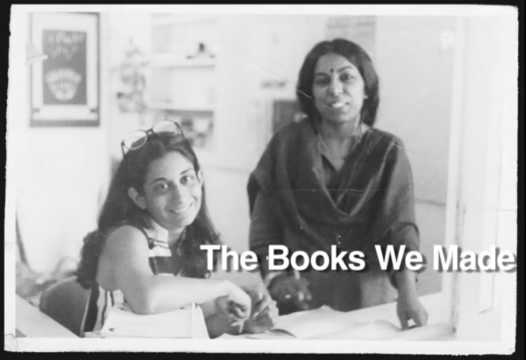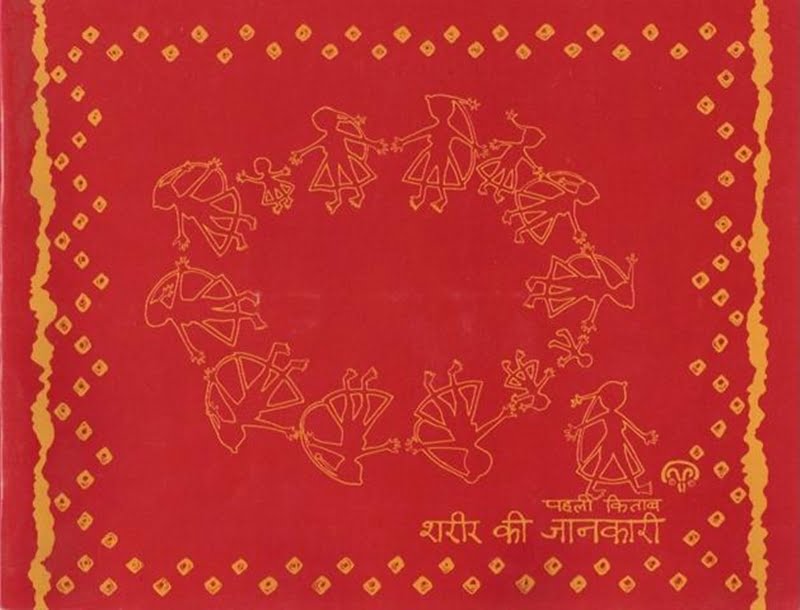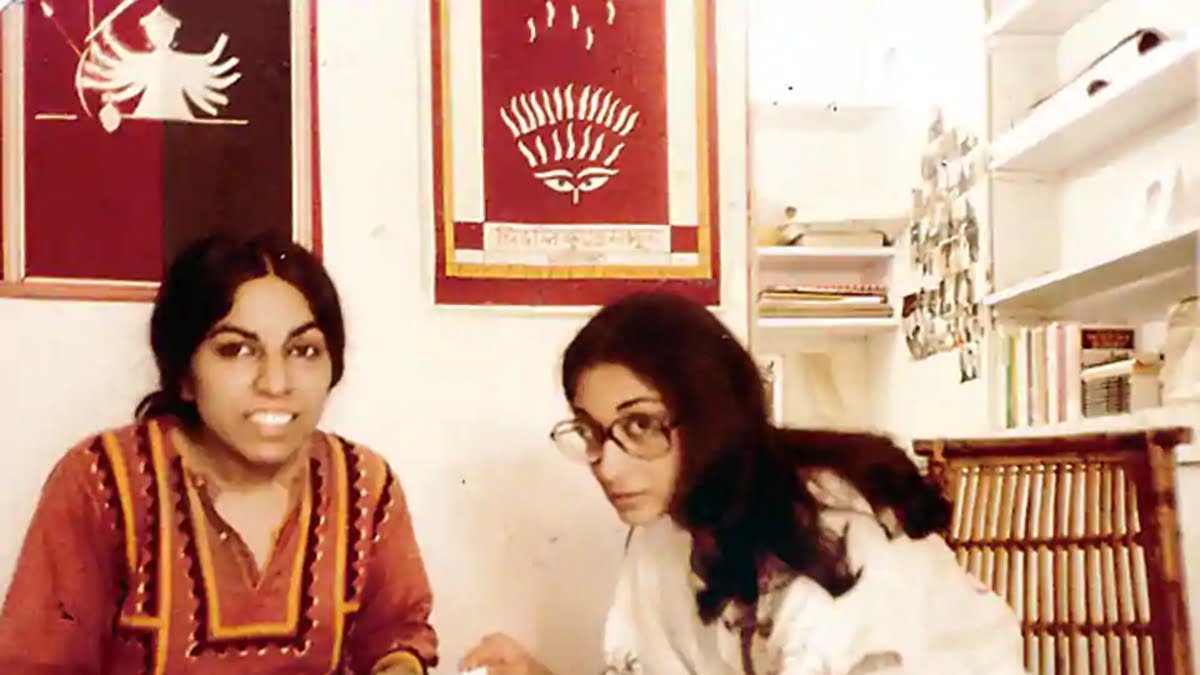The business of publishing all over the world has been mostly male-dominated. The history of publishing shows how women writers for centuries have had to struggle to make themselves heard. The need to create a safe and free space in the public sphere for women to be published had already assumed urgency by the early twentieth century.
A feminist press is one that does not simply market its titles to women and men but expressly commits to publishing titles that are feminist in aim, scope and objective, to its readers. The Indian feminist publication business includes publishing houses that specialise in women’s issues, advance feminist causes, and print academic, fiction, memoirs and non-fiction work by women. The history of feminist publishing is not only inherently interesting but of utmost importance. Recognising and supporting women’s causes, publishing houses such as Kali for Women, Zubaan, Women Unlimited, Tara Books, Tulika Books, Stree, Samya, Asmita, among others have pushed the boundaries and made way for feminist publishing. They challenge the status quo and wage a continuous battle both to publish cutting edge feminist work and negotiate with the mainstream publishing industry for market share.
The history of feminist publishing is not only inherently interesting but of utmost importance. Publishing houses such as Kali for Women, Zubaan, Women Unlimited, Tara Books, Tulika Books, Stree, Samya, Asmita, among others have pushed the boundaries and made way for feminist publishing.
The feminist publishing press and the commercial space of the market place exists in a sort of dynamic tension; it is a volatile relationship between progressive politics and business profitability. In spite of the demands of the marketplace for popular titles, the established trends in reading habits, the huge dominance of mainstream publishing houses, feminist publishers have been game-changers. They have impacted the way we think about gender in society, influenced our understanding of patriarchy and feminism, have ushered in a movement for gender equality and provided a platform for women to speak and to be heard.
History Of The Feminist Press
Today we see women occupy plum posts in publishing houses, call the shots and make critical decisions about what will be published and how. However, feminist publishing remains a peculiarly unacknowledged and under-examined aspect of feminist history, but one that had real influence and effect. The history of feminist press is very important and interesting. The first attempt to open a publishing house just for women and by women was in the nineteenth century Victorian England. The Victoria Press was a printing press started by Emily Faithfull, along with other feminist activists, in London, on March 26th, 1860. It took a century for the world to see the birth of a radical feminist revolution in the field of publishing.
Exactly a hundred years later, Virago Press was founded by Carmen Callil in London in 1970. Virago Press committed to publishing women’s writings and books on feminism, feminist themes, topics and subjects. It became a pioneer in the field, breaking the glass ceiling and successfully addressing unequal gender dynamics in the publishing industry. In the 1970s when the second wave of feminist movement for women’s liberation was making huge progress, the need to advance women’s literature and set up feminist publishing houses was felt urgently. Virago Press was founded at that very time. It gave voice to the movement and became an important means to take control of cultural production. It continues to publish today and competes with mainstream publishing companies, making a mark in commercial publishing along with bringing out titles by women and re-printing forgotten or out-of-print works by neglected women writers along with those works by male authors that engage with feminist themes.
India’s answer to Virago Press came in 1984 with the founding of the hugely influential feminist publishing house Kali for Women. Riding on the waves of the women’s rights movement of the 1980’s in India, Kali for Women was founded by two equally dynamic feminists: publisher Urvashi Butalia and scholar Ritu Menon.
Feminist Publishing in India

India’s answer to Virago Press came in 1984 with the founding of the hugely influential feminist publishing house Kali for Women. Riding on the waves of the women’s rights movement of the 1980’s in India, Kali for Women was founded by two equally dynamic feminists: publisher Urvashi Butalia and scholar Ritu Menon. Arguably the first Indian publishing house dedicated to publishing on and for women, Kali for Women started in a garage in New Delhi. Butalia and Menon, came up with a small capital and a powerful idea of transforming the field of publishing in India by bringing to the fore hitherto neglected voices of women through academic publishing and activist works, translation and fiction.
Kali for Women published some pathbreaking books mostly in English but also took on radical publishing in vernacular such as the Hindi reference book Shareer ki Jankari (‘About the Body’). Shareer ki Jankari (1989) was written by 75 village women from Rajasthan, and sold by them at a special price in the villages. Shareer ki Jankari was extremely frank about sex and women’s bodies including issues such as menstrual taboos, shocking some commentators and breaking the boundaries between academic publishing for niche market and mass literature. Kali for Women acknowledged that by publishing primarily in English, from Delhi, it was constrained by class, language, location. However, by publishing a radical book like Shareer ki Jankari, it made a conscious effort to bring out the voices of marginalised women and help them be heard.

Committed to social change, Kali for Women published Radha Kumar’s hugely influential The History of Doing (1993), a pioneering attempt to record and analyse the feminist movement in India spanning from the beginning of the nineteenth century to post-independence present day; the ecofeminist Vandana Shiva‘s landmark work Staying Alive (1988), an in-depth work on women, ecology and survival in India; Kumkum Sangari and Sudesh Vaid’s landmark Recasting Women: Essays in Colonial History (1989) and the English translation of Qurratulain Hyder’s magnum opus Aag Ka Darya (River of Fire) (2003). These are works which are considered essential reading for an understanding of women’s movement, ecofeminism, gender and colonialism in South Asia.
After running Kali for Women for nearly two decades and creating an enviable corpus of feminist titles spanning creative writing, activist tracts and scholarly texts, the duo split in 2003 and two new publishing houses came out of it. Butalia’s Zubaan Books (2004) and Menon’s Women Unlimited (2004). Both continue to publish ground-breaking work on feminism, upholding their commitment to redefine feminist issues and enlarge their scope of field by moving beyond India to engage with feminist writings from the subcontinent and beyond.
Butalia asserted, in an interview given to LiveMint on June 14, 2013, that with her publishing project she wants to prove that feminist publishing can survive commercially with its politics intact. Politically committed to carrying the legacy of feminist publishing forward in a commercially viable space, Zubaan Books and Women Unlimited now undertake publishing translations and finding a younger profile of writers.
Feminist Publications and the Challenges of the Marketplace
These expansions point out to an interesting and complex relationship between the feminist publishing press and the demands of the marketplace. Butalia asserted, in an interview given to LiveMint on June 14, 2013, that with her publishing project she wants to prove that feminist publishing can survive commercially with its politics intact. Politically committed to carrying the legacy of feminist publishing forward in a commercially viable space, Zubaan Books and Women Unlimited now undertake publishing translations and finding a younger profile of writers.
Kali for Women and subsequently Zubaan Books and Women Unlimited, were indeed game changers by breaking into the male-dominated publishing industry and opening up a market space for women’s work about women to be published and recognised. They helped build a knowledge base about women both from India as well as the subcontinent, opened up a space for women’s writing, proving that such writing is wide ranging and full of nuance and variety, and inspired generations of feminist publishers to publish work in the feminist space and still be commercially viable.
With good marketing strategies, feminist publishers have increased their sales. This has been made possible also because feminism as an ideology has been on the rise and is steadily gaining ground especially among young people in India. More readers are now showing greater interest in feminist issues and a deeper engagement with women’s causes. There is an improvement in women’s enrolment rate in higher education, more women are taking up jobs outside home and there is a general advancement in society with regards to women’s issues and causes. Movements like ‘#MeToo’ campaign against sexual harassment, the battle for LGBTQ+ rights leading to the revoking of provisions in section 377 of IPC decriminalizing homosexuality in 2018, recent mainstream Hindi films such as Pink (2016), Lipstick Under My Burkha (2016), Thappad (2020), tackling women’s issues such as consent, female autonomy and domestic violence, have also given a fillip to social change. For today’s feminist publishers, an uncompromising ideological commitment seems to fortunately also make good business sense.
Also read: How Is Women Writing A Form Of Protest In A Male-Dominated World
Feminist Publishing Today: Expansion and Interventions
Feminist publishers in India, who follow Butalia and Menon, have already made a mark in the publishing industry. Works that are liberating, subversive, empowering in women’s own voices have found a place in such publications. Stree publishes books on women’s studies in English and Bengali. It publishes academic and fictional work in translation as well as in English, highlighting women’s issues and the condition and status of women in India.
Feminist publishing has spawned several other important publishing houses which have made their mark on the Indian feminist publishing scene. Stree-Samya, Tara Books, Tulika Books, Asmita have engaged vibrantly and furiously with feminist issues both in adult literature as well as young adults fiction and children’s literature.
With the rise of an increasingly commodified consumer culture, the conglomeration of the book industry and varied expressions of feminism, publishing is a vibrant yet conflicted industry. However difficult it may have been to publish political work that is strictly feminist, feminist publishing has spawned several other important publishing houses which have made their mark on the Indian feminist publishing scene. Stree-Samya, Tara Books, Tulika Books, Asmita have engaged vibrantly and furiously with feminist issues both in adult literature as well as young adults fiction and children’s literature. This is very encouraging not simply for the future of publishing but for confidence-building and social progress.
There are also several Indian academic journals devoted to feminism, feminist politics, women’s studies, gender studies, such as the Indian Journal of Gender Studies, Gender and Women Studies and many others, which rigorously publish articles that push the boundaries of our understanding of feminism and gender and deepen our engagement with women’s issues. The vibrant feminist publishing industry in India has also inspired several important online platforms that are now engaged in bringing women’s work, issues and voices to the fore in the virtual space. Many feminist publishers today operate in niche and micro presses and few others have fanned out to include a larger market.
Feminist publications are a significant aspect of feminist activism. The feminist publishing houses expose the biases of the literary tradition while expanding their boundaries to include many more women writers. By publishing ground breaking work, bringing silent voices to the fore, tearing down the veil of taboo, translating regional literature by women, expanding the area of feminist activism by moving beyond India to include South and West Asia, these publishers should be credited for generating significant amount of attention around women’s issues and women’s struggle for gender justice and equal rights. Armed with the courage to go where there was once no money, these publishers have provided a forum for women writers as well as other marginalised communities to speak out and advocated for issues to be taken seriously. Feminist publishing has helped us discover our own voices and amplify those that have been historically silenced. Feminist publications help everyone to see the world through a feminist lens. Feminist publishing is good for all of us. Feminist publishing is here to stay.
Dr. Paromita Chakrabarti is Associate Professor of English and Director, Global Research Initiatives (GRI) at H.R. College of Commerce and Economics, University of Mumbai where she has been teaching since 2001. She is a 2010-2011 Fulbright Nehru Doctoral Research Fellow at the Department of English, Indiana University, Bloomington. Her research areas include migration, diaspora, postcolonial studies, gender and nation. In her spare time Paromita enjoys trekking and travelling. She can be found on Facebook.
Featured Image Source: Hindustan Times




